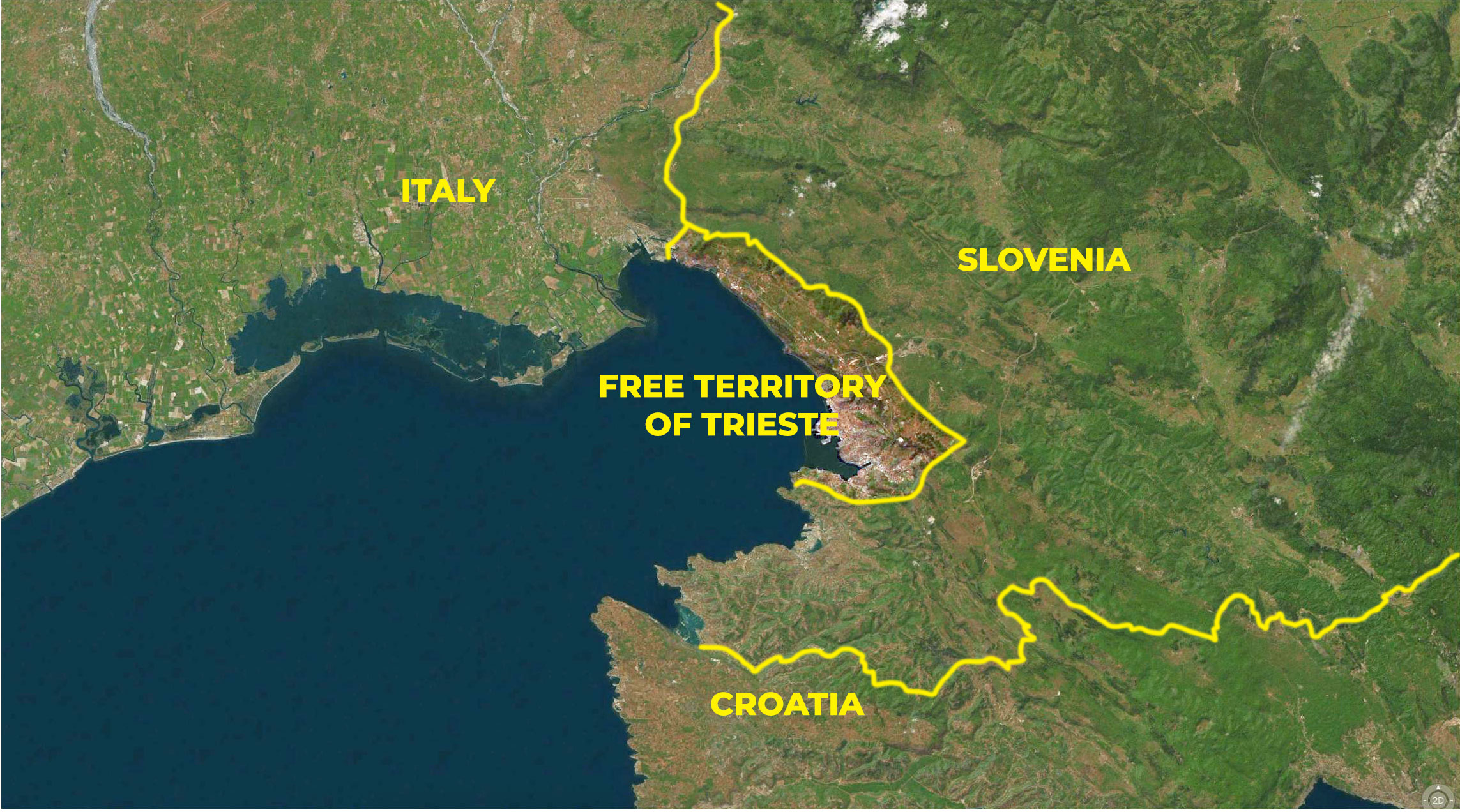
The present-day Free Territory of Trieste (since 1992).
Official names: Free Territory of Trieste – Territorio Libero di Trieste – Svobodno tržaško ozemlje.
Other official names by the United Nations: Territoire libre de Trieste | Свободная территория Триест | Territorio libre de Trieste | 的里雅斯特自由区 |
إقليم ترييستي المستقل
Established with: UN Security Council Resolution S/RES/16 (1947); Treaty of Peace with Italy. Signed at Paris, on February 10th, 1947.
Independence Day (from Italy): 15 September 1947
International instruments providing border changes: U.N. Resolutions S/RES/753 (1992), A/RES/46/238, S/RES/754 (1992), A/RES/46/236, S/RES/777 (1992), A/RES/47/1.
Land area: 212 km2
Population: 231.445 (source: ISTAT, 2019).
Official languages: Italian, Slovenian. Administrative language: English.
Capital city: Trieste – Trst. Municipalities (larger to smaller): Trieste – Trst, Muggia – Milje, Duino-Aurisina – Devin Nabrežina, Dolina, Zgonik – Sgonico, Repentabor – Monrupino.
Bordered by: Italy, Slovenia.
Government (since 1954): special trusteeship; primary administration entrusted to the Governments of the United States of America and of the United Kingdom of Great Britain and Northern Ireland on behalf of the United Nations, sub-entrusted by them to the responsibility of the Italian Government with the Memorandum of Understanding regarding the Free Territory of Trieste.
International Free Port: the Free Territory’s most important State corporation. To be administered by an International Commission. Placed at the service of all States, without discriminations. Home port for ships and vessels flying the flag of Austria, Hungary, Czechia, Slovakia, Switzerland.
Clima: sub-Mediterranean on the coast, sub-continental on the Karst highlands.
Main faiths: Christianity (Roman Catholicism, Serbian Orthodox, Greek Orthodox, Romanian Orthodox, Evangelical), Jewish, Muslim, Buddhist.
Translated from book “Tracks of Legality” by Roberto Giurastante.
